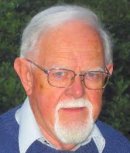
Plenary Lecture
The Organo-Zeolitic Soil System: A New Biological Approach to Plant Nutrition

Professor Peter J. Leggo
Department of Earth Sciences
University of Cambridge
UK
E-mail: pjl46@cam.ac.uk
Abstract: A highly effective biological fertilizer (bio-fertilizer) can be produced cheaply in countries that have a source of a suitable type of zeolitic rock. Such rocks occur worldwide in areas of past or current volcanism. In the event of explosive volcanic activity huge volumes of silicic glass and other debris are projected into the atmosphere. Reaching high altitude the fine material is separated forming ash clouds. composed of fine grained glass shards. On entering water they become thick beds of sediment producing a rock having a high abundance of zeolite. These rocks are available from open cast quarrying. When mixed with organic waste, either animal or plant, a biological fertilizer is produced. Ammonium ions, from the decomposing organic waste, become oxidised by soil micro-organisms (Crenarchaeota) to nitrate together hydrogen ions which react with the substrate to provide a range of essential and beneficial plant nutrients. Unlike chemical fertilizers (NPK) the nutrients are delivered slowly as the plant grows and there is little surplus to leach into the ground and thus the bio-fertilizer is not highly susceptible to leaching by rainfall. Adequate Phosphate ions are also available from the organic waste and Potassium, being a more ubiquitous element is present in the soil / organic mixture and acts to back exchange ammonium ions that are oxidized to nitrate as mentioned above.
Brief Biography of the Speaker: On graduating from Bristol University with a Ph.D in geology and mineralogy I joined The Bureau of Mineral Resources in Canberra, Australia; later seconded to The Australian National University to work on Isotope Geochronology. After a following three year post doctoral research post at the University of Leeds, UK I joined The Florida State University in Tallahassee, Florida, USA as a professor of Earth Sciences and established the mass-spectrometer laboratory to measure the ages of rocks and minerals. Visiting many overseas countries as a consultant in mineral exploration I changed my area of research and went to Cambridge University to study the many applications of natural zeolites. Together with colleagues I developed the organo-zeolitic-soil system which is an on-going project at the present time.